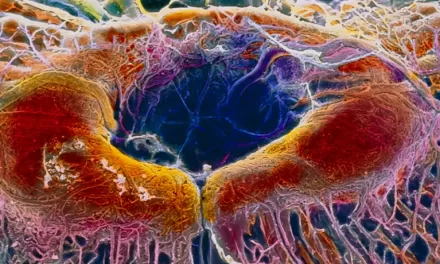Artificial Intelligence (AI) has transcended its role as a mere automation tool and has become an indispensable asset in the realm of healthcare. Its integration is revolutionizing patient care, as evidenced by a groundbreaking study conducted by Stanford Medicine. This study illuminates AI’s pivotal role not just as an assistant but as a proactive predictor of health deterioration in hospital patients, ultimately fostering timely interventions and improving clinical outcomes.
The study, led by Dr. Ron Li, a clinical associate professor of Medicine at Stanford Medicine, unveils an AI-based model implemented at Stanford Hospital. Unlike traditional monitoring methods, this model harnesses the power of AI to continuously assess various patient data points, ranging from vital signs to electronic health records and laboratory results. By updating this data every 15 minutes, the AI calculates a risk score for patient deterioration, enabling early identification of potential health declines.
Dr. Li emphasizes the transformative impact of this AI system, which goes beyond passive monitoring to actively alerting physicians and nurses when a patient’s data suggests an imminent deterioration. This proactive approach facilitates prompt and coordinated interventions, preventing patients from reaching critical levels that necessitate intensive care.
Dr. Lisa Shieh, a clinical professor of Medicine involved in the study, underscores the significance of the AI model’s role in facilitating communication among medical staff. By standardizing communication and ensuring simultaneous alerts to both nurses and physicians, the model fosters collaborative decision-making, particularly crucial in the dynamic and fast-paced hospital environment.
Jerri Westphal, a nursing informatics manager, highlights the practical implications of the AI system in patient care. Beyond its predictive capabilities, the model initiates vital conversations among medical professionals, ensuring that patients receive timely and appropriate interventions to prevent further deterioration.
Margaret Smith, the director of operations for primary care and population health, underscores the collaborative effort involved in implementing and evaluating the AI model. The active involvement of the nursing team in refining the model underscores a commitment to improving patient care through technology-driven innovations.
The study’s findings reveal a remarkable 10.4% reduction in health deterioration events among patients identified as high-risk by the AI system. This tangible outcome underscores the efficacy of AI in real-world healthcare settings, where proactive interventions translate into improved patient outcomes.
While acknowledging challenges such as alert fatigue, Dr. Li emphasizes ongoing efforts to enhance the accuracy and reliability of the AI model. As AI technology continues to evolve, its integration into healthcare promises even greater advancements in patient care and medical outcomes.
The successful integration of AI in predicting patient deterioration exemplifies the transformative potential of technology in enhancing collaboration and communication among medical professionals, ultimately leading to improved patient care and outcomes.
The full study is published in the journal JAMA Internal Medicine, marking a significant milestone in the convergence of AI and healthcare.











